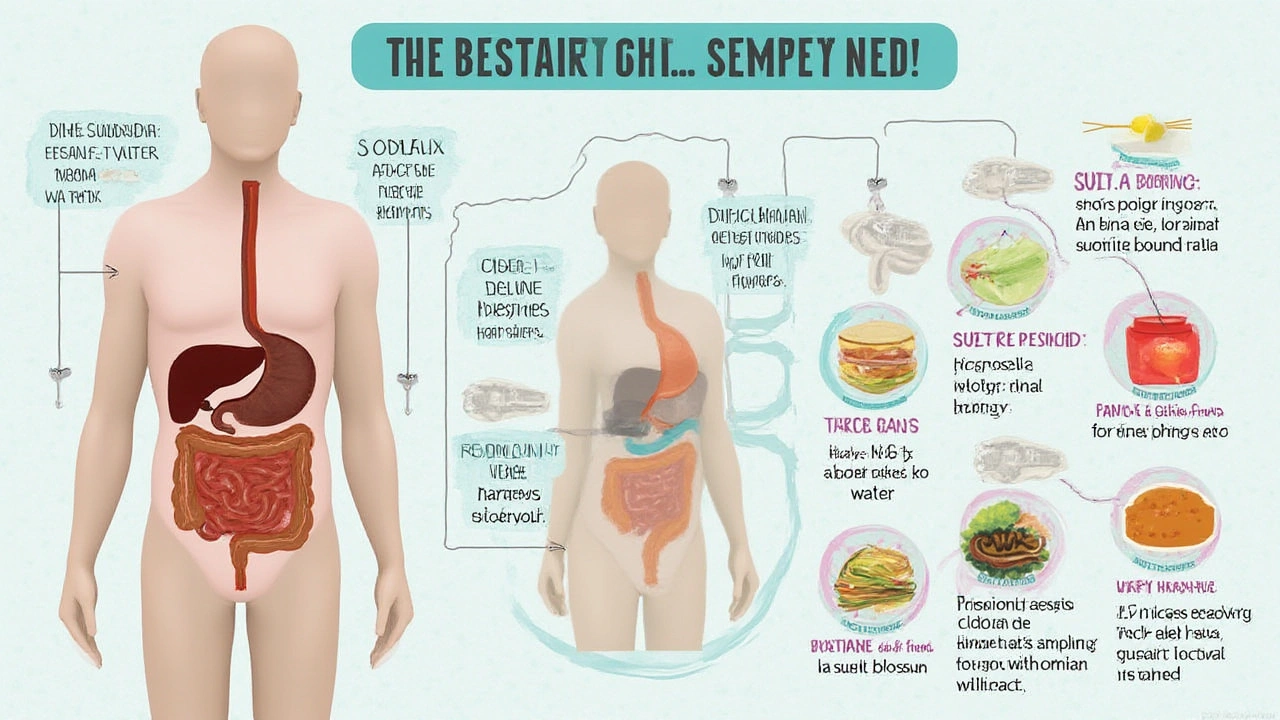Abdominal Bloating: What It Is and How to Beat It
If your belly feels tight, swollen, or looks larger after a meal, you’re probably dealing with abdominal bloating. It’s a common gut complaint that can make you uncomfortable and self‑conscious. The good news is that most bloating has a clear cause and can be managed with everyday changes.
Common Triggers of Abdominal Bloating
Food is the biggest culprit. Beans, cruciferous veggies (like broccoli and cabbage), onions, and carbonated drinks all contain gases or fibers that ferment in the gut. Even sugar substitutes such as sorbitol can pull water into the intestines, creating a puffed‑up feeling.
Digestive habits matter, too. Eating too fast lets you swallow air, while sitting or lying down right after a meal slows gastric emptying. Stress also plays a role; anxiety can tighten the gut muscles and alter hormone levels that affect digestion.
Medical issues can mimic or worsen bloating. Constipation, irritable bowel syndrome (IBS), small‑intestine bacterial overgrowth (SIBO), and food intolerances (lactose or gluten) are all worth checking if bloating is frequent or severe.
Quick Ways to Reduce Bloat
Start by slowing down. Chew each bite 20–30 times and put your fork down between mouthfuls. This gives enzymes a chance to break down food and lowers the amount of air you swallow.
Swap fizzy drinks for still water or herbal tea. Plain water helps move waste through the colon, while peppermint or ginger tea can calm spasms that trap gas.
Add a pinch of movement after meals. A short walk (10‑15 minutes) stimulates peristalsis, the wave‑like motion that pushes food onward. Even gentle stretching can relieve tension in the abdominal wall.
Watch your fiber balance. High‑fiber foods are great long‑term, but sudden increases can cause bloating. Introduce them gradually and pair with plenty of fluids.
If you suspect a food intolerance, try an elimination trial. Cut out dairy, gluten, or FODMAP‑rich foods for two weeks, then re‑introduce one at a time while noting symptoms.
When to see a doctor? If bloating comes with severe pain, unexplained weight loss, blood in stool, or lasts more than three weeks despite lifestyle tweaks, schedule a visit. These signs could point to an underlying condition that needs professional care.
Bottom line: abdominal bloating is often a signal from your gut that something’s off, but most of the time you can fix it with simple habits. Identify the triggers, adjust your eating routine, and move a little after meals. If the problem sticks around, get a medical opinion to rule out deeper issues.
